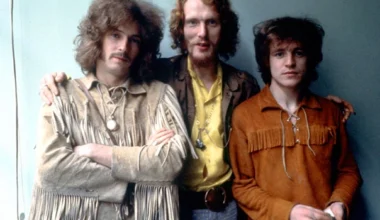It has been more than three decades since Freddie Mercury died. In the 1970s and 1980s, he won over fans’ hearts and minds all over the world as the captivating frontman of Queen, and his influence still seems strong today. We can thank the 2018 hit film Bohemian Rhapsody and Brian May and Roger Taylor’s perseverance. Our devoted fan base also played a crucial role in this.
The brilliant biopic by Bryan Singer and Dexter Fletcher exposed the tragic underbelly of Freddie Mercury’s rise to fame. It delved into his life in the spotlight, revealing its challenges and complexities. Mercury had to leave Zanzibar with his family when he was a teenager to avoid the violent uprisings that year (1964). The singer was affected for life by this early upheaval. However, he never would have ended up in the UK, where he met his future Queen bandmates.
Alongside David Bowie and Elton John, Mercury enjoyed great success as a glam-rock star during his first stint with Queen. The frontman for Queen, like these two celebrities, battled the intense spotlight of celebrity. He faced ongoing criticism about his sexual orientation. Unfortunately, the past is a strange place, and in terms of homosexual acceptance, society in the 1970s was far less tolerant.
Mercury’s first marriage to Mary Austin was turbulent due to the forced concealment of his bisexuality, covert sexual encounters, and growing press harassment. After his divorce in 1976, Mercury started to retreat more and more. His extravagant partying lifestyle was only a front. Behind it lay the social isolation that was slowly seeping into his mental and physical domains.
Queen’s output shifted away from the early glam sound and toward something a little more danceable in the late 1970s and early 1980s. Queen reached new heights of popularity thanks to funky hits like John Deacon’s 1980 songwriting contribution “Another One Bites the Dust.” Their 1984 release “I Want to Break Free” further solidified their success. However, the band’s dispersed creative direction caused discord amongst its members.
In 1981, Mercury started collaborating with Paul Prenter, his new assistant, while recording on Hot Space. The rest of the Queen was suspicious even at this early stage. Prenter would later turn on them when he leaked contentious details about Mercury’s personal life to the media. Prenter dug in, pressuring Mercury to break away from his fellow musicians and make drastic changes to his creative vision.
Hot Space’s funk-pop leanings were inspired by the success of “Another One Bites the Dust.” Mercury’s submission of the contentious song “Body Language” was influenced by Prenter. The song alluded to sexual relations, featuring sultry moans from Mercury. MTV removed the song from its airwaves due to the suggestive nudity in the music video.
The Queen fan base had mixed feelings about the song, but interestingly, the band itself had some criticism for it. Taylor singled out Prenter for his contribution to the song’s composition in the Days of Our Lives documentary. He admitted, “I didn’t want our music to sound like you had just walked into a gay club. He wanted it to sound like that.”
“Body Language” appeared to correspond with Mercury’s most promiscuous time, which culminated in his relatively unimpressive solo endeavors in the middle of the 1980s.







